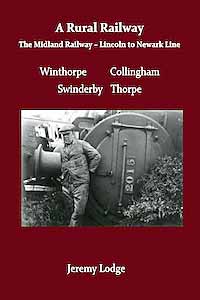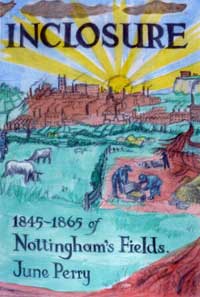Book reviews, Winter 2022
A Rural Railway: The Midland Railway – Lincoln to Newark by Jeremy Lodge
ISBN: 978 0 9956634 28

This book is not intended for just specialist railway or an academic audience, but for a wider readership too. It is a story of the rural stretch of the Midland Railway Lincoln and Nottingham Line which survived the Beeching closures in 1960’s. It is a fascinating book about the line and people from 1846 to the present day. It is a book written by a social historian who pays tribute in the book to the railway historians who advised him.
Jeremy Lodge is a Social Historian and this very well illustrated book with images and photographs is a true social history of 175 years of a railway line and the surrounding communities. Jeremy starts the book with an early description of the route between Lincoln and Nottingham. He then proceeds to discuss the growth of Victorian railways and the origins of the Midland Railway Company who constructed the line. He then goes on in the rest of this paperback book of 245 pages to focus on the rural part of the line and its people. Jeremy purposefully left out a study of the Urban areas and concentrated in the book on a rural social history and the importance and impact of the growth of the railways in the nineteenth century, the linking of Lincoln and Nottingham and the historical stories and events on the line. He tells the stories and events on the line as well as the railway line and its buildings. Towards the end of this book he brings the history of this railway up to date from 1963 to the present day.The text is brought to life by the superb range of photographs and images that Jeremy has included to support the story of this stretch of railway. They really do enhance the fascinating historical story in this book.
Paul Baker
INCLOSURE : 1845-1865 of Nottingham's fields by June Perry

This very new book is an account of the long and complicated execution of the 1845 Nottingham Inclosure Act as recorded in the numerous thick Minute Books in Nottingham Archives. By trying to deal with everything at once the Act had built-in faults that made it impossible to implement. The three Commissioners pointed this out early on and tried to have it changed but the corporation would not agree.
The commissioners would continue but would take no responsibility for time and money lost as a result.
Needless to say they were blamed for delays and debts incurred but those reading this book will sympathise with their patience and dedication to doing their best for the growing town.
There is a wealth of detail in the book of letters, tenders for work, contracts and work plans, accounts by those using the fields, appeals for help, sales of land, claims for losses, barristers engaged and giving their opinions. Much that was contradictory and had to be decided.
Paul Baker
Both books reviewed are available at Five Leaves Bookshop, 14a Long Row, Nottingham, NG1 2DH